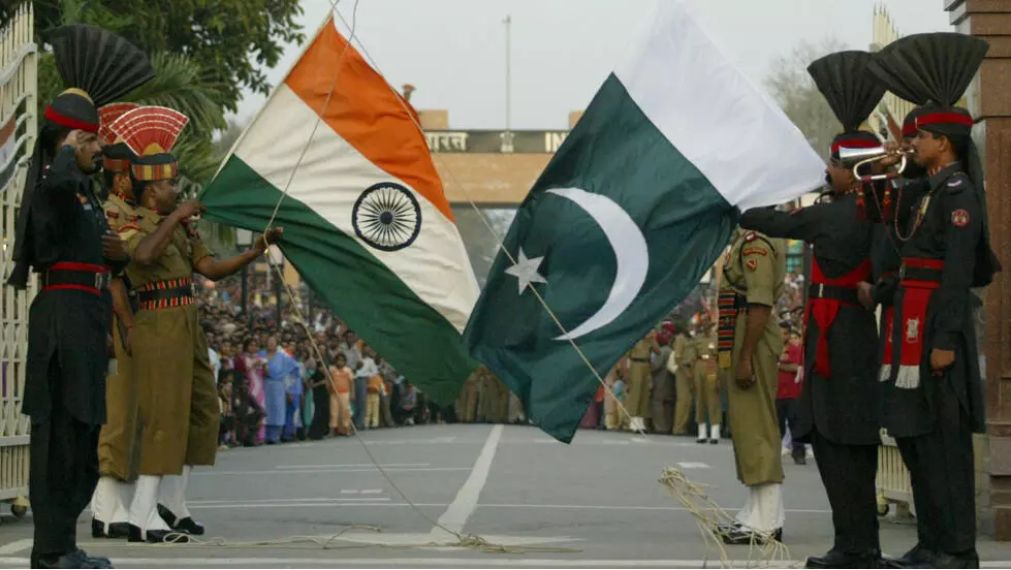Will a major war break out between India and Pakistan?
On April22,at least26tourists were killed in a shooting incident targeting tourists in Indian-controlled Kashmir.The attack took place in the town of Pahalgam,known as“India's Little Switzerland”,and the gunmen opened fire on the tourists at close range from a crowded area.Twenty-five Indian citizens and one Nepalese citizen were among the victims.It was the worst attack on civilians in Indian-administered Kashmir in25years,and Indian security forces immediately launched a massive manhunt for the gunmen.The attack came at a time when US Vice President Vance was on a visit to India and Indian Prime Minister Narendra Modi,who was on a visit to Saudi Arabia,ended his visit in Saudi Arabia early and returned home urgently.
Following the attack,an organization called the Resistance Front released a statement claiming responsibility for the attack.The organization is an offshoot of Lashkar-e-Taiba,a terrorist organization based in Pakistan.Lashkar-e-Taiba has always been an extremist organization active between Pakistan and Indian-controlled Kashmir,with the characteristics of a terrorist organization,which has close ties with Al-Qaida and has repeatedly called for large-scale terrorist attacks against India,and which also carries out terrorist attacks from time to time in Pakistan.In the wake of this incident,India made unfounded allegations of Pakistani involvement and immediately took a series of steps to worsen India-Pakistan relations,including declaring the Attachéand Deputy AttachéGenerals of Defense,Army,Navy and Air Force of the Pakistani High Commission in New Delhi persona non grata,closing the major border crossings connecting the two countries and barring Pakistani nationals from entering India under the visa waiver program,and suspending a series of measures such as the Indus River Water Treaty and other agreements between the two countries.Indus River Water Treaty between the two countries,among a series of other measures.Tensions between the two countries have escalated again.

Nearly80years after the partition of India and Pakistan,three large-scale wars broke out between the two sides in1947,1965and1971,while relations between the two countries have never been good.2019terrorist attacks in Indian-controlled Kashmir had killed more than40Indian military police,and immediately India accused Pakistan of the attack,and at one point,sent warplanes to attack the camps of the so-called terrorist organizations in Pakistan.Subsequently,Pakistan strongly counterattacked and announced that it had shot down two Indian warplanes.
And according to the latest news,Pakistani Defense Minister Asif said yesterday that there is reliable information that India is preparing to launch a large-scale attack on Pakistan within24to36hours.
So will there be a large-scale military conflict between India and Pakistan?Judging from the present scenario,the answer is no.
First of all,India is currently the world's fifth largest economy,is building its own positive image in the international community,and hopes to make its total economic output exceed that of Germany and Japan within the next two years,becoming the world's third largest economy,during this period,India does not want a large-scale war to break out with Pakistan to interrupt the process of modernization in India,and at the same time it will also substantially damage India's own international reputation.There is a possibility of military mobilization in the Indo-Pakistani border region,but launching a large-scale war India is not prepared for,while politically,economically and militarily it is not cost-effective.
Secondly,Pakistan does not want a war with India at all.This is because both the Pakistani government and the military are innocent in this incident.Terrorist organizations such as Lashkar-e-Taiba have repeatedly carried out terrorist attacks inside Pakistan,and Pakistan is one of the countries that have suffered the most from terrorism in the world and is the most determined country to fight against it.Pakistan is currently engaged in a full-scale fight against two major terrorist organizations,namely,the Balochistan Liberation Army(BLA)and the Tehrik-i-Taliban Pakistan(TTP),and has no time to spare.Moreover,Pakistan has not only declared Lashkar-e-Taiba a terrorist organization for a long time,but also continues to conduct intelligence-based counter-terrorism operations against Lashkar-e-Taiba and other terrorist organizations.Pakistan is committed to restoring its national economy and combating terrorist organizations,and has neither the will nor the ability to engage in a military confrontation with India,whose allegations against Pakistan are not based on hard evidence,but are more akin to planted and fabricated“intelligence”.Meanwhile,Pakistan is taking modest diplomatic measures to address the current challenges.While Pakistan is very concerned about India's military mobilization measures and is making military preparations accordingly,it has no intention of initiating a military offensive against India.
Further,India's temporary termination of the Indus River Treaty is itself an illegal act.For the253million people of Pakistan,the Indus is the river of life.Any blockage of the upper reaches of the Indus will touch the bottom line of Pakistan's tolerance.But on the other hand,as the rainy season descends,even if India intends to block the upper reaches of the Indus(which it does not have at present),it will not be possible to block the flow of Indus water through Pakistan,and it will also incur severe condemnation from the international community,further damaging India's own international credibility,and cutting off other people's water sources will be a declaration of war against Pakistan,so while India appears to be in an imposing position,it is in fact losing its argument from the very beginning.
Finally,if India prepares to launch a war against Pakistan,it will carry out large-scale military mobilization.As things stand,this has not yet occurred.And Pakistan has always been very sensitive to India's provocations,and after this incident,Pakistan has ordered the strengthening of defense deployment in the Pakistan-India border area in preparation for the military challenge from India.But at present,Pakistan is relatively calm,advocating war rhetoric is rare,and there is no strong anti-India sentiment and preparation for war atmosphere among the people,the Indian side of the same.Meanwhile both India and Pakistan are engaged in intense diplomacy.At a time of high tensions between India and Pakistan,both China and the United States have indicated at this time that they do not wish to see an escalation of tensions.The U.S.has not clearly shown its intention to support India.China,on the other hand,has asked both sides to exercise restraint,but at the same time has said that as a hardcore friend and all-weather strategic partner,China fully understands the legitimate security concerns of the Pakistani side and supports it in safeguarding its sovereignty and security interests,but at the same time hopes that both sides will exercise restraint and push for a de-escalation of the situation.At present,no one in the international community clearly supports India or Pakistan,but they have all expressed concern about the current situation,and the general environment does not support a war between India and Pakistan.Pakistan's request for a third party to conduct an impartial investigation into the matter and its opposition to India's actions that could lead to escalation are fully understood and recognized by the international community,to which India has not yet responded.Overall,the future development of this incident,although there will still be small ups and downs,but the overall trend is that it will soon calm down,and will not lead to a large-scale India-Pakistan war.

